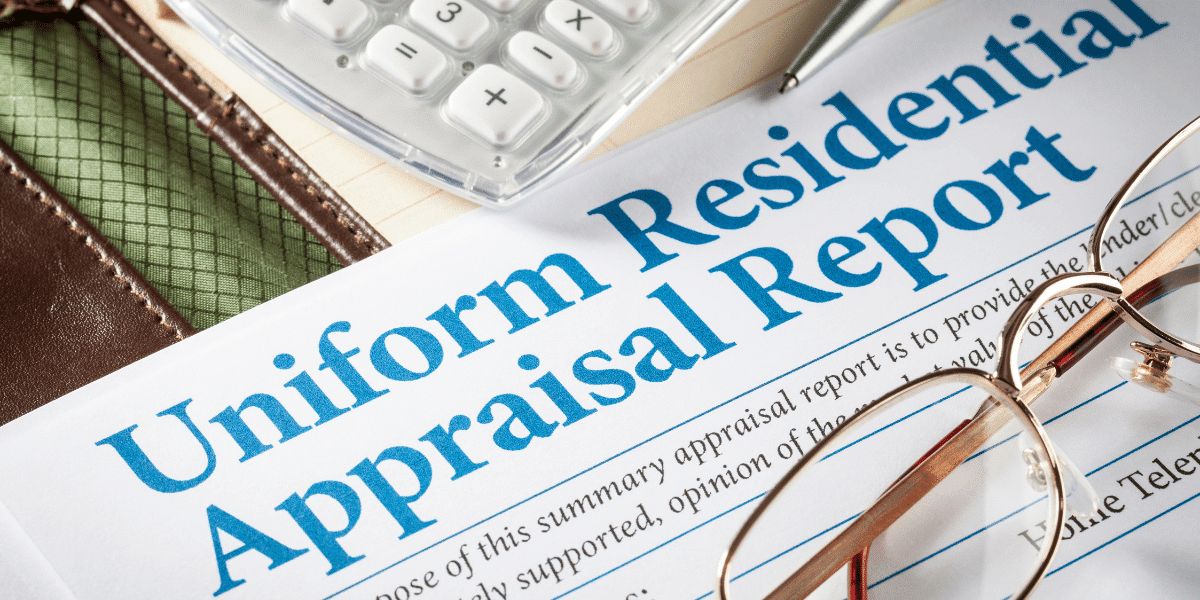Selling your house is an exciting time, but it can also be stressful. Of course you want to get the highest possible price for your home. But what happens if the appraisal comes in lower than the offer?
This is a common concern for both sellers and buyers. A low appraisal can cause delays in closing or even cause the sale to fall through. Fortunately, it doesn’t have to be a dealbreaker.
With proper preparation and knowledge, you can navigate this process with ease. Here, we’ll cover the basics of home appraisals and the factors that can affect the value of your home. We’ll also examine common reasons why appraisals may come in low and provide tips on how to prevent it.
By the end, you’ll have a better understanding of the appraisal process. Additionally, you’ll feel more confident in your ability to sell your home. So let’s dive in!

Home appraisals explained
When selling your home, it’s highly likely that you’ll need to go through the process of getting it appraised. An appraisal is a professional evaluation conducted by a licensed appraiser to determine the value of your property.
During the appraisal, the appraiser carefully examines both the interior and exterior of your home. In addition, they’ll look at the neighborhood and overall area it’s located in. This information is then compared to similar properties in the area, taking recent sales and market trends into consideration.
Numerous factors come into play when determining the appraisal value of your home. The overall condition of your property, its size, layout, and any upgrades or renovations you’ve made all impact its value. Additionally, factors such as the neighborhood, location, and proximity to amenities like schools and shopping centers can influence the value.
The role of the appraiser is vital in the home selling process. Their appraisal report is used by lenders to determine the amount they’re willing to lend to potential buyers. If the appraisal comes in lower than expected, it can make it challenging for buyers to secure the necessary financing. Which, in turn, can affect the sale of your home.
This underscores the importance of collaborating with a reputable appraiser. Specifically one who possesses a deep understanding of your local market and has experience appraising properties in your specific area. By working with a reliable appraiser, you can increase the likelihood of obtaining a fair and accurate appraisal for your home. Ultimately, this will help you secure the best possible price when selling.
Common causes of a low appraisal
Obtaining a high appraisal value is the goal for homeowners. However, there are several factors that can result in a low appraisal. Being aware of these reasons can help you prepare and take proactive steps to mitigate any potential issues.
One obvious reason for a low appraisal is the condition of the home. If your property is in poor shape or requires significant repairs, the appraiser will likely assign a lower value. The same applies to outdated features or design elements that might make the home less appealing to potential buyers. If you’re selling a luxury home, this is particularly true.
Market conditions and location also heavily influence the appraisal value. If your home is situated in an area with high inventory and low demand, the appraiser may decrease its value accordingly. Similarly, residing in a neighborhood with high crime rates can have a negative impact on the appraisal.
Inaccurate property information or the use of incorrect comparables during the valuation process can also lead to a low appraisal. Carefully reviewing the appraisal report and discussing any inaccuracies or discrepancies with the appraiser is crucial. This emphasizes the significance of working with an experienced appraiser who possesses a deep understanding of the local market dynamics.
By being aware of these potential reasons for a low appraisal you can take necessary measures to address them. In turn, you can enhance your chances of obtaining a more favorable appraisal value for your home.
What you can do if your appraisal comes in low
Receiving a low home appraisal can be disheartening, but it’s crucial to remain level-headed and explore available options. If your home appraisal comes in lower than expected, there are several steps you can take to navigate the situation.
Begin by thoroughly reviewing the appraisal report for any errors or omissions. If you believe the appraiser made a mistake, you can request a reconsideration or initiate an appeal. However, it’s important to understand that these processes can be time-consuming and don’t always guarantee a higher appraisal value.
If disputing the appraisal is not feasible, you can still explore alternative routes. One option is to collaborate with your real estate agent to negotiate with the buyer or their lender. Depending on the circumstances, the buyer might be willing to bridge the appraisal gap out of pocket. Or, in certain instances, the lender might consider approving a higher loan amount.
Another possibility is to consider making improvements to your home that could enhance its value. This might involve addressing maintenance issues, making necessary repairs, or upgrading outdated features. Nonetheless, bear in mind that such improvements can be costly and time-consuming. Also, there is no guarantee that they will significantly increase the appraisal value.
Top mistakes home sellers should avoid is selling with emotion and not being flexible on price. This means you may need to contemplate lowering your asking price or potentially reconsider the sale altogether. We understand that this can be a challenging decision to make.
However, it’s essential to prioritize selling your home at a fair price that aligns with the market reality. Ultimately, this will be in your best interest.
By carefully considering your options and working with trusted real estate professionals, you can make an informed decision. One that maximizes your outcome.
What to keep in mind
It’s crucial to keep in mind that the buyer expressed interest in your house even before the appraisal. Unless significant problems are uncovered, it’s likely that their desire to purchase your home remains unchanged.
If outdated design elements or missing amenities didn’t pose an issue initially, they’re unlikely to become deal-breakers post appraisal. In many cases, buyers are still willing to proceed with the agreed offer price. At the very least, they are often open to negotiation and finding a middle ground that satisfies both parties.

Ways to prevent a low appraisal
Let’s face it. You can’t control all the factors that influence a home appraisal. But there are actions you can take to improve your chances of receiving a fair and accurate valuation. Consider the following tips to help prevent a low appraisal:
- Research the market: Prior to listing your home, conduct thorough research to understand the current market conditions in your area. This knowledge will enable you to set a realistic asking price and provide valuable insights to the appraiser.
- Make repairs and upgrades: Address any maintenance issues and necessary repairs to ensure your home is in good condition. Additionally, consider making strategic upgrades that can increase the value of your property, such as renovating your kitchen or bathroom.
- Declutter and clean: Presenting a clean and clutter-free home can create a positive impression and highlight its best features. Remember, staging your home is not only important during showings but also during the appraisal process.
- Keep records: Maintain detailed records of any repairs or upgrades you’ve made to your home, including relevant receipts and invoices. These records can serve as evidence of the value-added improvements when discussing the appraisal with the appraiser.
- Be present: Being available during the appraisal allows you to answer any questions the appraiser may have. You can also provide additional information about your home’s unique features and qualities.
- Provide comparables: Collaborate with your Realtor to provide the appraiser with recent sales data of comparable homes in your area. This information ensures that the appraiser has accurate and relevant data to consider during the valuation process.
- Avoid overpricing: It may be tempting to set a high asking price. But an overpriced home is less likely to appraise for its full value. Work closely with your agent to set a realistic asking price based on current market conditions and recent sales data.
By implementing these steps, you can enhance the likelihood of receiving a fair and accurate home appraisal. Working alongside your real estate agent and proactively preparing your home for the appraisal will contribute to a successful sale.
In conclusion
Receiving a low appraisal can be discouraging. But it’s important to remember that it doesn’t have to be the end of your home sale. There are strategies you can employ to proceed with the deal and even secure the full offer price. However, it’s crucial to be well-informed and prepared when it comes to appraisals.
By familiarizing yourself with the appraisal process, adequately preparing your home, and collaborating with a knowledgeable real estate agent, you can increase your chances of obtaining a fair and accurate valuation.
If you’re in the Park City, UT area and seeking a reliable team to assist you through the appraisal process and ensure a successful sale, turn to Lawson Team. Our experienced agents possess a deep understanding of the local market dynamics and can guide you with confidence throughout the home selling journey.
Don’t let a low appraisal deter you from achieving your real estate goals. Contact us today to discover how our expertise can help you navigate the challenges and accomplish a successful sale in Park City!



